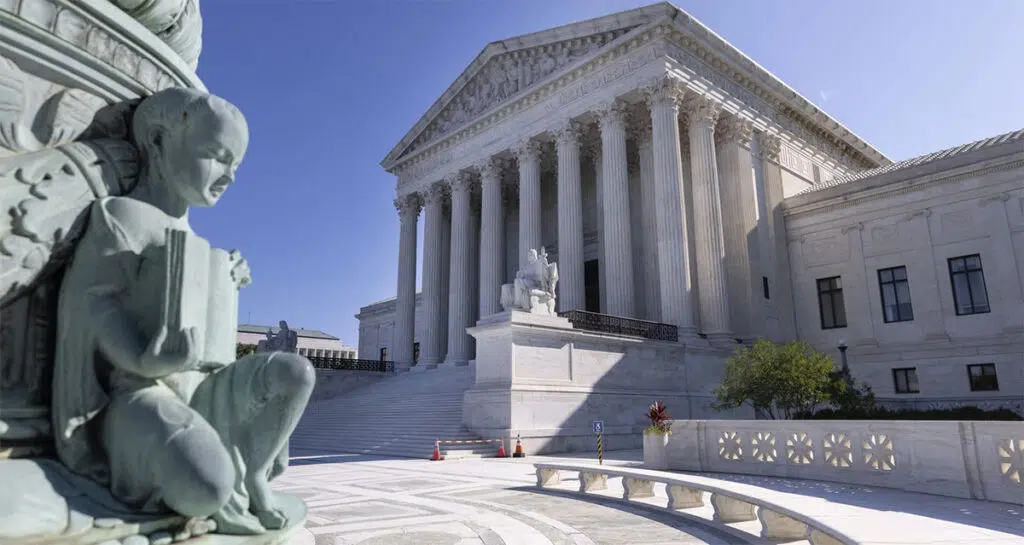
Scuttling Chevron Will Put the Ship of State Back on a Constitutional Course
Like North Atlantic squalls pounding away at the New England shoreline, judicial deference doctrines have eroded the civil liberties ordinary Americans enjoy. No one can hold back the tide, but the Supreme Court has the opportunity to stop the erosion of civil liberties in a marquee case it will hear this week. My organization, the New Civil Liberties Alliance, is proud to represent the fishermen plaintiffs in this case, Relentless v. Department of Commerce.
Relentless poses a constitutional challenge to Chevron deference. Chevron is a court-made legal doctrine from 1984 requiring judges to defer to an agency’s reasonable interpretation of an ambiguity in a statutory provision it administers. It falsely treats ambiguity – and even statutory silence – as implicit delegations of rulemaking power from Congress to agencies.
At first, Chevron supporters thought that by empowering agencies the doctrine would rein in judicial activism. In time though, constitutionalists have come to recognize that Chevron enables the administrative state to arrogate power to itself while flouting due process guarantees that protect all Americans. This case provides one stark example.
For some 30 years federal fisheries agencies have randomly placed observers aboard commercial fishing vessels to log the crew’s activities and ensure compliance with catch quotas. Placing observers is expensive. The National Oceanic and Atmospheric Administration concedes that the cost runs at least $700 per day, per observer. That’s multiple thousands of dollars over the course of the typical fishing voyage, in a business where profit margins are tight.
The government bore the cost until 2020 when, concerned that congressional appropriations no longer sufficed to cover the cost of the program, NOAA crafted a new rule that charged the cost to fishermen instead.
NCLA’s clients operate commercial fishing vessels. We challenged the 2020 rule, arguing that federal law does not authorize NOAA to mandate industry-funded observers. The agency countered by citing an allegedly “ambiguous” provision of the 1976 Magnuson-Stevens Act, which it interpreted to allow burden-sharing. The agency demanded Chevron deference to its strained interpretation, and a federal trial court in Rhode Island duly obliged. The U.S. Court of Appeals for the First Circuit affirmed.
These courts did not decide that NOAA’s interpretation of the statute was better than our clients’ interpretation; instead, they merely held that NOAA’s interpretation was “reasonable” – even if our clients’ interpretation was better. Now before the Supreme Court, we argue this judicial deference accorded under Chevron is unconstitutional in at least two respects.
First, deference doctrines allow bureaucrats to hijack the judicial power that Article III of the Constitution properly vests in the federal judiciary. Construing the law is the essential and exclusive role of the courts. The defining characteristic of this task is independent judgment, and judges are duty-bound to provide litigants their own views on a statute’s meaning, not just to assess the agency’s reasonableness.
For its part, an executive branch agency, like anyone else, cannot be trusted to render judgment in its own case. The agency has a policy agenda and is subject to the president’s political influence. Regulators will invariably interpret (or, as in this case, seek out) “ambiguous” provisions to benefit their power-expanding agendas. That no man can be the judge of his own case is an ancient principle of justice so basic that it should not need restating. But as we have seen, the administrative state imperils first principles.
Here, NOAA has salvaged its preferred regulatory program in the face of lapsing congressional appropriations by discovering latent authority to pass costs on to fishermen in a 40-year-old statute.
The Founding Fathers anticipated this problem. Hamilton explains in Federalist 78 that the separation of powers reflects a division among will, force, and judgment. Without the independent judgment of the judiciary, the people have no defense against the force of the executive, particularly where it has been conjoined with fictitiously delegated legislative will. For this reason, myriad provisions in the Constitution protect judicial independence. Most notably, judges are appointed for life, cannot serve simultaneously in other branches of government, and cannot have their pay cut by Congress. But all those parchment protections are for naught if judges defer to an agency’s legal interpretation instead of providing their own judgment.
The second reason Chevron is unconstitutional is that it violates due process of law principles. Due process requires that disputes be resolved with neutral rules in a neutral forum by impartial judges. But Chevron makes a mockery of neutrality. It requires a judge to pre-commit to resolve legal ambiguity in favor of one party – and the most powerful party at that – the federal government. Put differently, Chevron systematically injects pro-government bias into legal proceedings; it puts a Leviathan-sized thumb on the scales of justice.
Separation of powers disputes are not esoteric. They pose the question fundamental to any republic – who decides? Nor are these issues arcane for our clients, commercial fishermen who will be forced to pay government agents for performing government functions on their boats, when Congress has never legislated that.
If NOAA can get away with snatching unlawful administrative power to force fishermen to pay for its regulatory regime, then with apologies to Billy Joel there will be no (Rhode) Island left for Rhode Islanders like my clients. The Court must scuttle Chevron and chart a new course, before it wrecks the F/V Relentless and takes the rule of law down with it.
This article was originally published by RealClearPolitics and made available via RealClearWire.



